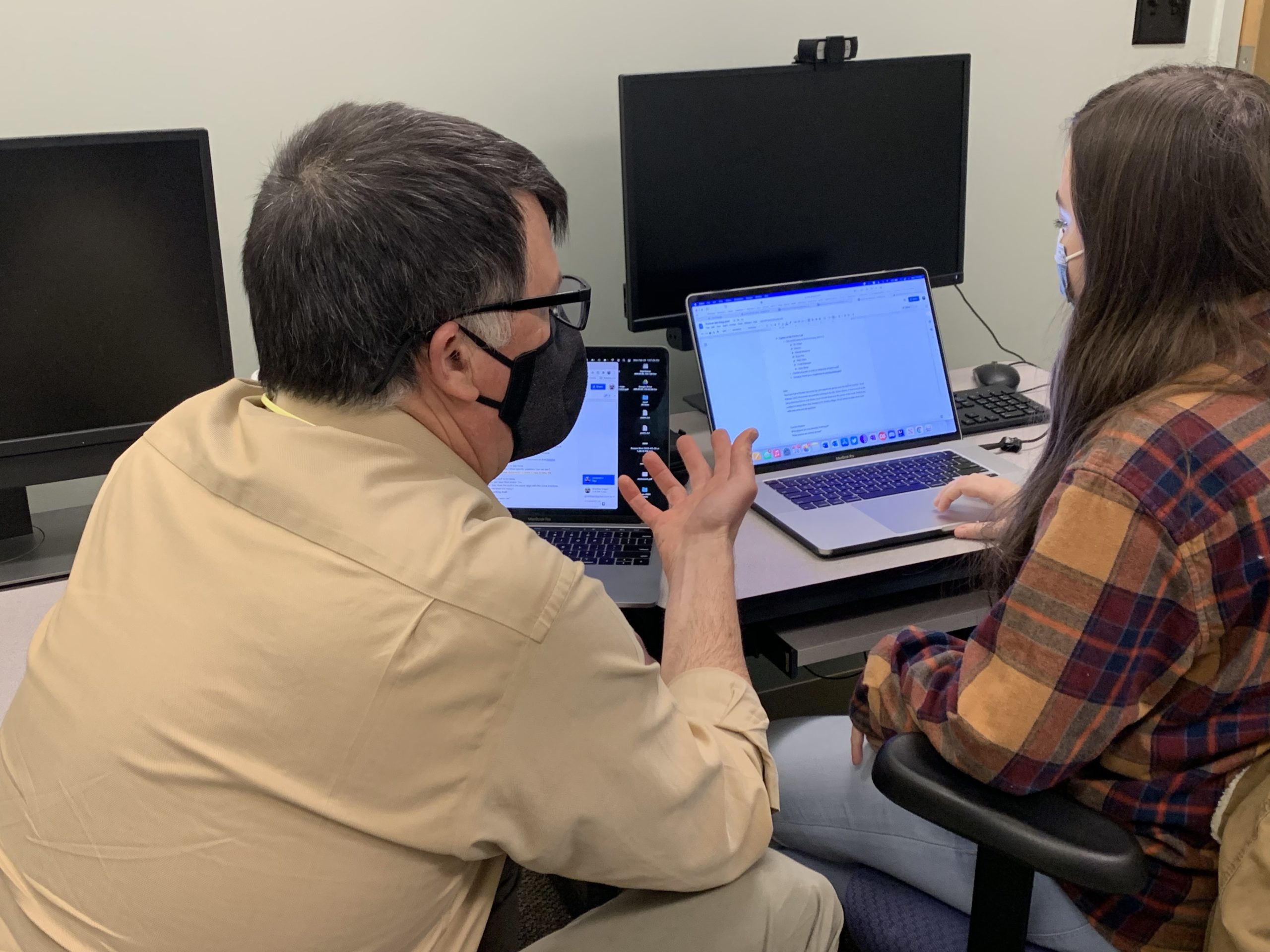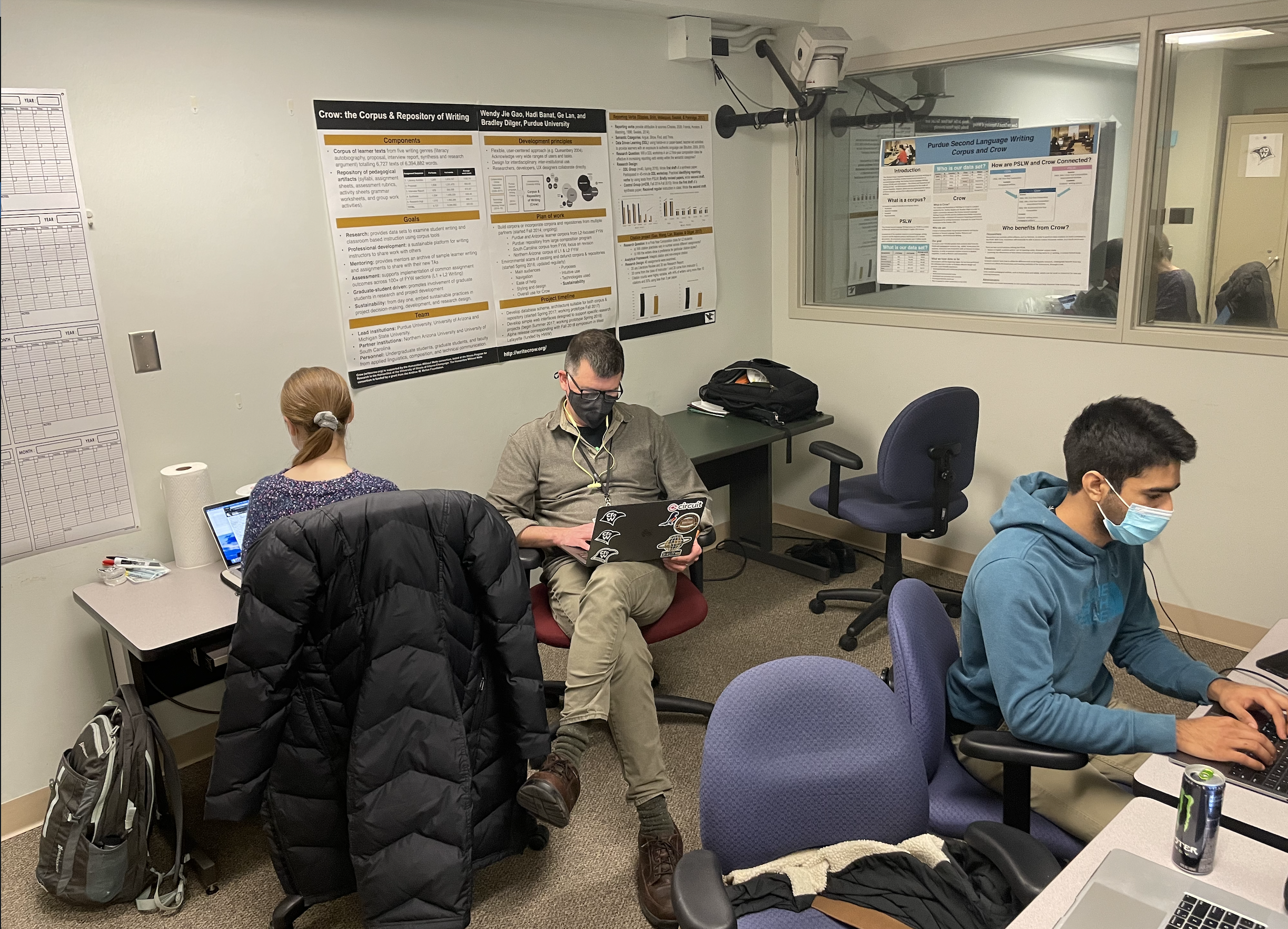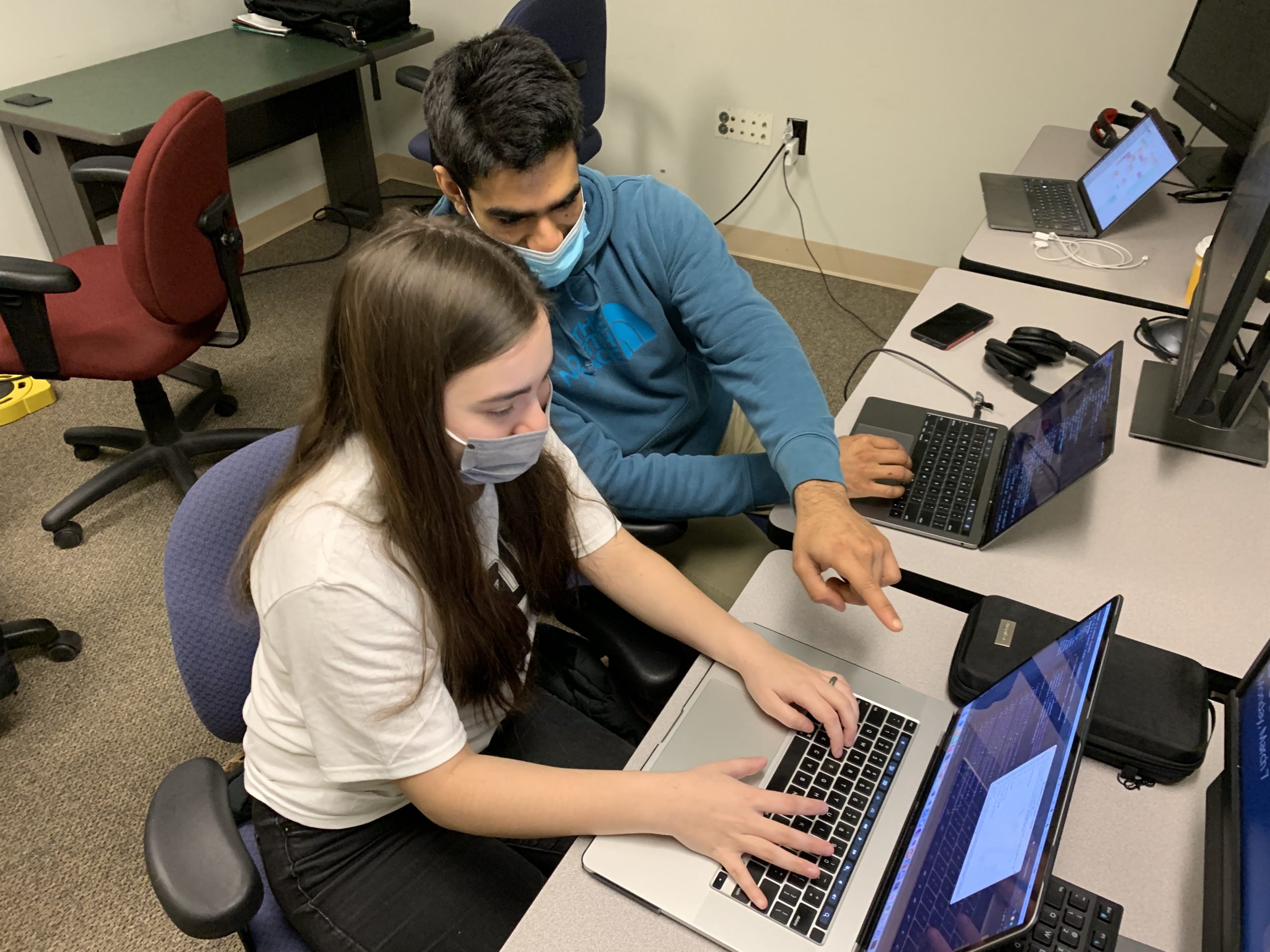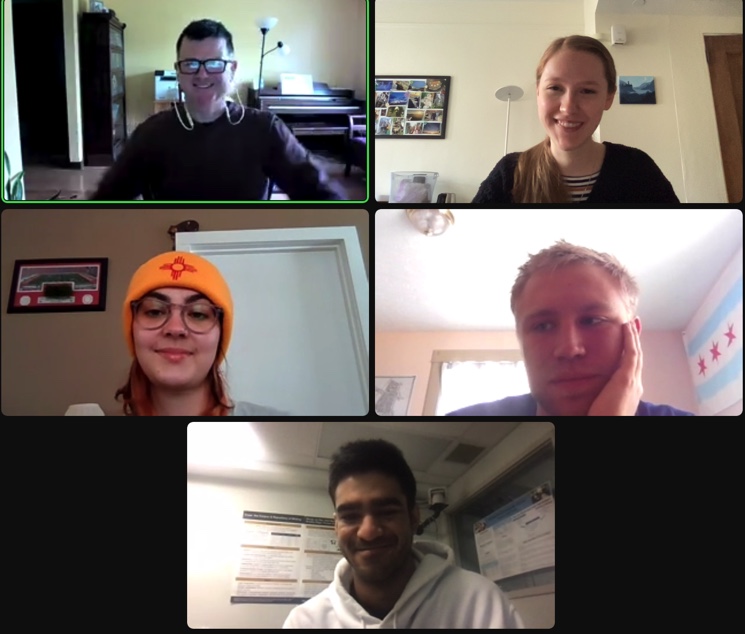The Crow Lab at Purdue University has seen significant growth over the last few months. As of February 2022, five interns are currently working on our project, thanks to support from a EVPRP grant. Studio Hours, or time to work in the lab in Heavilon Hall or over Zoom, occur several times over the course of the week. Fridays are a reflective studio hour time, hosted by Bradley Dilger, for all interns to share their progress with each other and ask questions. The Crow lab is open for interns to use at any time, which is especially useful for one-on-one conferencing.




Though almost all of the work for Crow is collaborative, everyone contributes to a specific set of projects.
I’m Hannah Brostrom, an undergraduate at Purdue. I have been a part of several projects, recently my focus has been on finishing the environmental scans we’ll use to improve the Crow website and platform, and de-identifying documents. I have also collaborated with a fellow intern, Vivek, to improve the de-identification tool (a program we use to help us anonymize the documents we use to build our corpus), and am working on (this!) blog post for the Crow website, and I’ll be doing more writing after Spring Break.
Bradley Dilger, an Associate Professor at Purdue, guides all Crow projects and assists everyone by answering questions and sharing his experience with writing research. He has been leading the grant writing projects, helping Vivek and I with our coding for the De-ID tool, and working with the Distributed Work Team. Outside of Crow, Bradley teaches professional writing and mentors student researchers.
Abby Elkin, an undergraduate researcher at Purdue, has been helping with the Innovation Grant. Additionally, she has been de-identifying and helping me with the conducting environmental scans to improve the Crow website. Abby is also writing a blog post about the improvements Vivek and I are planning for improvements to the De-ID tool, once that work is completed.
Shelton Weech, a graduate teaching assistant at Purdue, has contributed heavily to the Distributed Work team through various writing projects, workshop projects, and the development of future grants. Outside of Crow, Shelton has been preparing for his dissertation conducting interviews with scientific communicators who use social media, all of which he transcribes and analyzes.
Vivek Natarajan, an undergraduate researcher at Purdue, has focused on all aspects of de-identification. He has been doing the de-identification work itself, as well as improving the tool we use for de-identification. Recently, he has fixed an issue where the edited version of a file was saving incorrectly, and he is building some code adjustments to improve user experience while using the tool.
Anna Shura, an undergraduate researcher at Purdue, has been focused on a variety of projects. She has written several Spotlights and Blog posts, as well as leading Crow’s social media presence. Anna is creating and documenting a Twitter and Web content strategy that includes a blog posting schedule, writing articles, and developing a stronger Twitter profile. She has also worked on organizing Crow’s Google drive, de-identification, and reviewing the processes behind developing the Innovation Grant.
Having lab space in Heavilon allows us to tangibly interact with one another and get help from the people around us when needed. This has been hugely beneficial, especially considering how collaborative Crow’s necessities are. The EVPRP grant has given us the necessary tools to work with each other efficiently and for the Crow interns to move forward not only with the Crow project, but also to learn and grow in their positions.